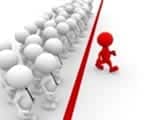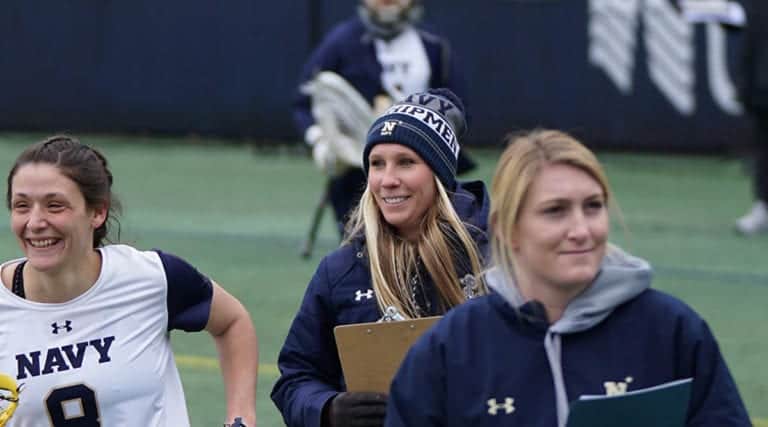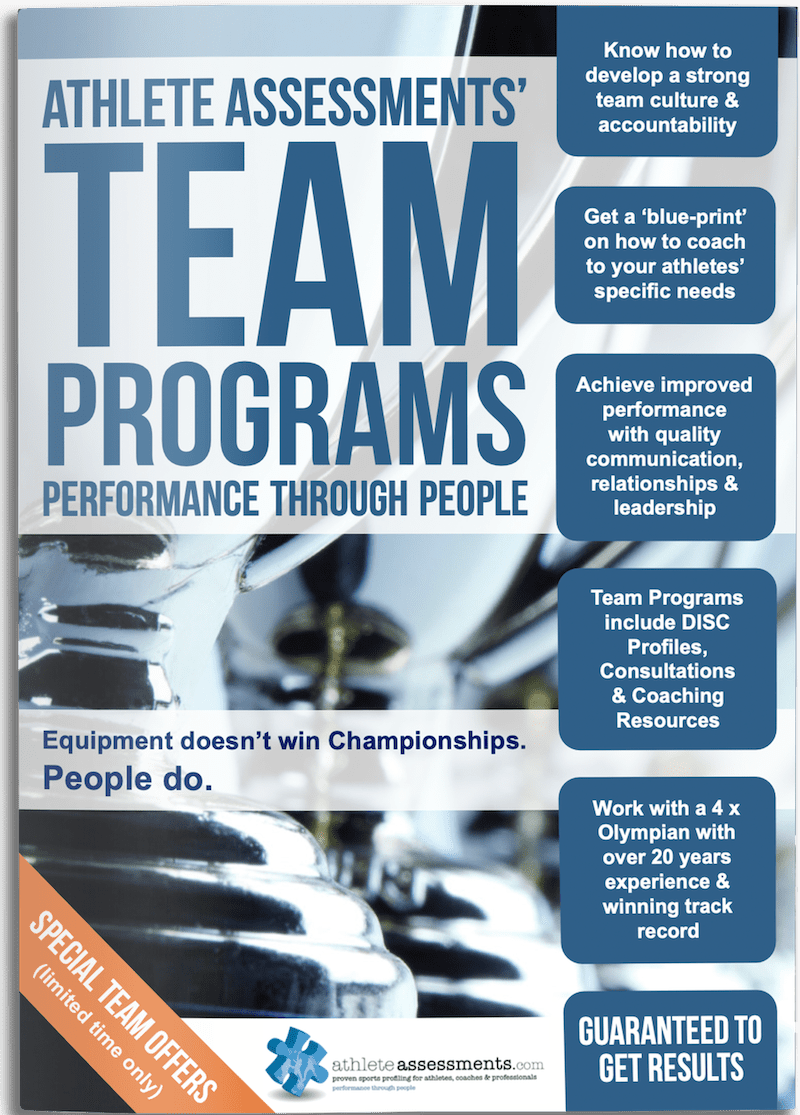Being a team captain means having an important leadership role in the team. Often, teams have more than the standard captain and vice-captain duo, with a senior group of leaders appointed to steer the team from within. It is no surprise that research into sport teams’ success emphasizes the importance of the role of Team Captain.
Athlete Leadership is all about what constitutes the key behaviors and qualities of effective team leaders – be they captains, leadership groups or senior team members. Hopefully, every person on the team, regardless of seniority should be behaving in a way which sees them positively leading and influencing others. And, like it or not, the reality is most athletes are seen by society as being a type of role model and therefore leaders.
If you’re a coach or sports administrator who is familiar with Athlete Assessments, then you know we believe sport has a fundamental role to play in developing contributing members of society. These individuals become our much needed future leaders, who are vital to our success as a society. This article begins to explore the qualities and behaviors we hope to see in our sports leaders.
Who should be captain?
How to choose a team leader (or captain) is one of the most common questions I am asked by coaches. It seems most coaches have arrived at their own unique method yet still check in with me to see what others are doing and for my thoughts. Most coaches agree; leaders should be selected based on a set of criteria constituting effective leadership behavior. Otherwise the risk is the captains are selected by a popularity contest.
The bottom-line is, leaders must be able to influence others (in a positive way). How they influence others will differ based on their own unique behavioral or DISC Style. All the teams we work with have a set of values and behaviors they have agreed upon as the standard to uphold. The simple answer to selecting the captain and other leaders is they must uphold these standards to the highest degree. Mostly the leaders role model and influence others to behave in the right way more so than other team members. Along with role modeling agreed team behaviors, leadership is about many other aspects of behavior which are outlined next.
Characteristics of the Athlete Leader
Is leadership “on the field” different to leadership anywhere else? This is an interesting question. If you think leadership is defined as the ability to influence others and thereby create followers, then leadership is cross contextual. I would agree that certain intricacies exist in sport that are not apparent in a business context, but essentially, leadership is leadership and often great leaders in sport can transfer that skill to other domains, provided they are accepted as credible in the leadership role. (We talk about this concept in our article on ‘Why Athletes are Great Leaders’).
This implies that these athletes have to have a level (a high level) of skill competence. Many leaders outside of sport were grounded in being a leader from a sporting context. In fact 95% of senior executives in Fortune 500 Companies played sport into their adolescent years. However, I think it is useful to separate what we know to be the characteristics of effective leaders from the skills of effective leaders. When considering characteristics of effective leaders, we are looking more at the personal or behavioral style qualities of an individual, of which there are many.
There is certainly not a one size fits all approach to leadership or style of leader. For example, we use the AthleteDISC to understand behavioral styles. I am always reinforcing how the various DISC styles can all be effective leaders, yet they do this in sometimes vastly different ways.
Each DISC style has both strengths and limitations in leadership. This article does not intend to go into each style. However we do suggest that they can all be leaders, but it is important not to expect your captains and leaders to be something they are not (therefore do not expect them to lead in a way which does not fit with their preferred behavioral DISC style).
Athlete Leadership Skills
When we talk about leadership skills, it is more centered on what skills leaders require in order to be effective. The below listed highlights the skills we hope our team captain and leaders possess.
- Knowledge of Self: An Athlete creating effective leadership begins with a self-awareness of their own leadership style, based on their AthleteDISC profile. This enables an understanding of strengths, limitations, communication style and conflict style as well as motivations and necessary environments for success.
- Interpersonal Relationships: By this we mean understanding team members and coach behaviors. Once a leader understands themselves, they are positioned to understand others, and this enables them to help those people be better contributors. This knowledge and skill enables leaders to develop relationships with those different to themselves. Building relationships is a core foundation skill for effective leadership. Teams are forged through common bonds and mutual understanding.
- Communication Skills: This skill is contingent upon the first two skill areas. Effective leaders know how to adapt their communication to suit the people and situation they are communicating in. This is referred to the ability to tailor a message to suit the audience.
- Guardian of Team Culture: Focused on the vision and behaviors of the team required to be successful. Leaders know the ingredients to be successful and will uphold these standards.
- Knowledge of Sport: This is an acquired skill, developed (of course) over a long time and it is critical to be seen as a credible person to lead others in the sporting environment. Effective leaders become students of their game and of sport in general. This means they take an active interest in what sport is about, its role in society and the intricacies of sporting performances. They are skilled in their respective game knowledge and the strategies required to be the best team, or individual possible.
- Leadership Skills: This is an area of skill incorporating a leaders ability to manage stressful situations, control their own emotions, present inspiring messages to their team, role model a work ethic, be willing to have “tough conversations” in order to uphold standards and manage conflict, and take personal responsibility for their own performances.
- Mentoring and Support Skills: Skills relating to one’s ability to work with another towards team goals and to help others be effective team members and learn the sport or game. Leaders are to be patient in supporting fellow team members and provide appropriate feedback in order to improve other’s performances.
- Decision Making: This is another critical area of leadership. The ability to make decisions under the pressure of training or intense competition is a defining factor in being successful. This decision making skill is the ‘game breaker’ when it comes to athlete leadership. If this skill is lacking in the captain or athlete leader, they will lack credibility with the team and the team will always struggle to perform well.
Behavioral Qualities
In addition to skills, leaders also possess many varying behavioral qualities. This is not a complete list as there are so many behaviors; however, we believe these behaviors are critical:
- Hard work and dedication.
- Team focused (not selfish).
- Self-esteem and confidence in own ability as a leader.
- Ability to be themselves and work to their strengths.
- Respectful of coaches, team members, support staff, opponents and officials.
- Behave in a credible and reliable manner by role modeling effective behavior to coaches and team members.
Summary
Effective Captain and Athlete leadership can and most likely has, defined your season in a successful way. Often however, every program will face the challenge of a ‘leadership vacuum’, where a strong leadership has resulted in the lack of emerging leadership. Effective succession planning can assist in this area and is the subject of another article. As a coach, having an effective leader(s) makes your role so much more enjoyable as you can delegate some of the directive and organizing part of your role to your leaders. Together you can form a very effective partnership.
Where to from here?
Using this article, you can assess where your leaders are in terms of their skill development and if like most leaders, there is room for improvement, you can initiate a development plan.
At Athlete Assessments we use the Student Athlete Leadership Program to help leaders understand their strengths and areas for development based on many of the areas we have listed here, and if you would like more information on Athlete Leadership, you may be interested in the articles below or our recent March 2021 Open Webinar on ‘Choosing Captains and Leadership Development in Your Team’, which you can access here. At Athlete Assessments, we’re here to provide you with excellence in service and here to help you be your best. If there is anything we can assist you with, please Contact Us.
Recommended Articles
By Bo Hanson - 4x Olympian, Coaching Consultant & Director of Athlete AssessmentsAt the recent 2009 Evolution of the Athlete Conference in Brisbane Australia, Athlete Assessments conducted a survey of participant coaches from Australia and New…
After reading ‘How Full is Your Bucket’ by Tom Rath and Donald O. Clifton Ph.D., I read another of Rath’s books titled ‘Strengths Based Leadership’. An important chapter of this book is all about why people follow leaders. For so long, leadership research has focused on asking leaders what they do. But with this focus of research, there is a very obvious point overlooked: You are a Leader only if others follow you.
Professional athletes can have a bad reputation, with stories of out of control behavior often seen in the media. This front-page drama, which the media in all facets of “news” reporting like to focus on, can often overshadow great athletic performances and important good news stories. As such it is easy to forget the important contribution athletes consistently make to society.
By Liz Masen, Client Director at Athlete AssessmentsA unique way of developing both life skills and leadership skills in student-athletesThe University of Wisconsin – Madison intertwine two key athlete development programs for multiple benefits. Led by…









